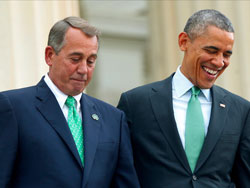Following a night of national disappointment for Democrats, New Jersey Governor Phil Murphy (D) narrowly defeated challenger Jack Ciattarelli (R), securing a second term. He will be sworn in for a second term in Jan. 2022, becoming the first Democratic governor in the state to win reelection since 1977.
As of the latest count, Murphy won the state of New Jersey by a mere 2.8 percentage points; 51 percent of voters chose him, with Ciattarelli garnering 48.2 percent. What will come next for Jack Ciattarelli and the New Jersey Republican Party is unknown, however, Ciattarelli’s defeat comes in the wake of a Monmouth University poll last week in which Murphy was up by eight percentage points leading into election night. Ciattarelli eventually ended up losing by a much smaller margin.
In an email to supporters, the Ciattarelli campaign stated, “Our team is making sure every legal vote is counted and the will of the people is heard loud and clear,” echoing false sentiments from former President Donald Trump about election fraud. Ciattarelli has yet to concede the election.
In the aftermath of this close election, Murphy has to grapple with the past three years, where we are now, and his plans for New Jersey over the course of his second term.
Born in Massachusetts, Phil Murphy is the former ambassador to Germany under President Obama. Murphy ran first in 2017 on a very progressive platform, promising legalization of marijuana, cost-free community college, raising the minimum wage to $15, and a millionaires’ tax, alongside his broad campaign goal “to build a stronger and fairer New Jersey.” Murphy pledged to focus the state economy on the little man, and not for the wealthy and connected, a piece of rhetoric popular amongst the progressive world of Democratic politics.
In terms of accomplishing his major promises, Murphy has fared extraordinarily well given the state’s unpredictable political history. The governor enacted reforms to gradually raise the minimum wage, legalized marijuana through referendum in the 2020 election, passed reform allowing community college to be tuition free to those who make below a certain income, alongside reinstating the millionaires tax.
Murphy also oversaw the brunt of the coronavirus pandemic in a heavily-traveled state coupled with the highest population density in the country. A year after the pandemic began, New Jersey boasts a 66.4 percent vaccination rate, with the virus being significantly less disruptive than it was a year ago.
Outside of his major campaign promises, Murphy’s administration has been credited with significant gun reform, the elimination of mandatory minimum sentences for drug offenses, overseeing the transference of administration of Newark and Paterson public schools back to their respective cities, and passing legislation that provides billions for various education projects and STEM programs. Murphy has also committed the state to developing offshore wind energy infrastructure, with the potential to produce 7,500MW of energy by 2035. NJ Transit is also set to have an entirely electrified fleet by 2040.
Perhaps Murphy’s most significant work is his stated commitment to improving the state economy. A landmark piece of legislation for this agenda layouts several billion dollars for main street businesses, sets a focus on projects in higher need communities to address systematic economic issues, alongside a major push concerning making New Jersey a state of innovation, with actions related to this being reinstating the Commission of Science, Innovation and Technology, and the appointment of a Chief Innovation Officer.
Other issues important to Murphy is expanding access to pre-K and voting alike, while pursuing a battle to further protect abortion rights in the state. Ahead of Murphy is another four years in his position as governor, and whether he will have the same success he had in his first term is not yet clear.
In his victory speech, Murphy acknowledged the slim margin of his win and attempted to appeal to both Democrats and Republicans.
“If you want to be governor of all of New Jersey, you must listen to all of New Jersey. And New Jersey, I hear you,” he said. “So tonight I renew my promise to you—whether you voted for me or not—to work every single day of the next four years to keep moving us forward.”


